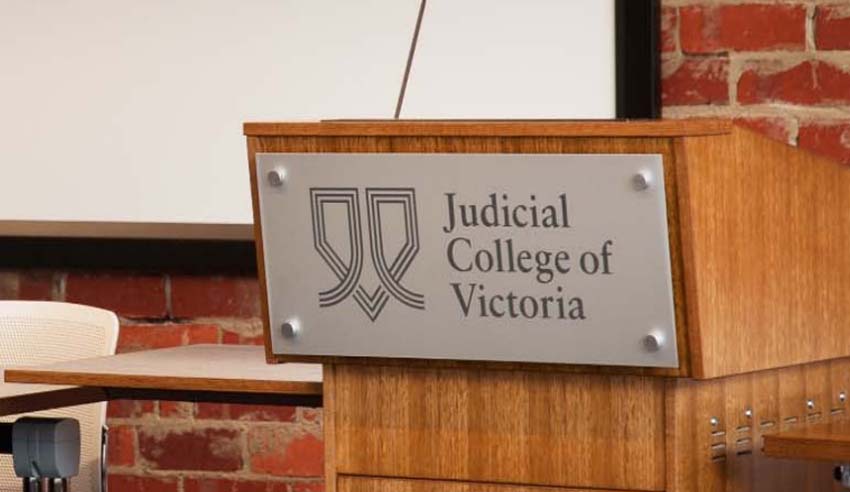An Australian first guide has been released specifically to aid Victorian judicial officers in identifying the needs and interests of victims of crimes.

Source: iojt-dc2013.org/~/media/Microsites/Files/IOJT/11042013-Strategic-Vision-Training-Judiciary.ashx
The guide – dubbed “Victims of Crime in the Courtroom: A guide for Victorian Judicial Officers” – has been designed to equip judicial officers with tools to engage and provide opportunities for post-traumatic growth while meeting legal and professional demands.
“I congratulate the Judicial College of Victoria on the production of such an excellent resource for judicial officers,” commissioner of Victims of Crime Fiona McCormack said.
“It’s wonderful to see this kind of effort, particularly in context of broader reform that is seeking to improve victim experience of the current justice system and reducing the potential for re-traumatisation.”
The new guide has been created to provide engagement and opportunities without compromising the legal, institutional and professional demands of an adversarial system. It also plays into demands for limiting the claims of bullying by members of the judiciary.
The move comes after calls were made for the Queensland judicial system to prepare a judicial bullying policy, covering a range of issues including conduct occurring in court.
According to the Judicial College of Victoria, the guide recognises the diverse interests and needs of victims of crime, noting that victim participation in an adversarial system is a developing area and “that no single approach will cater to all.”
“Victims of crime play an important role in our criminal justice system but they are not a party to the criminal proceeding,” Ms McCormack said.
“The Judicial College guide provides an excellent exploration of the key challenges for the legal profession in responding to the needs and interests of victims. It clearly sets out a trauma-informed approach for prosecution, court staff and judicial officers.”
